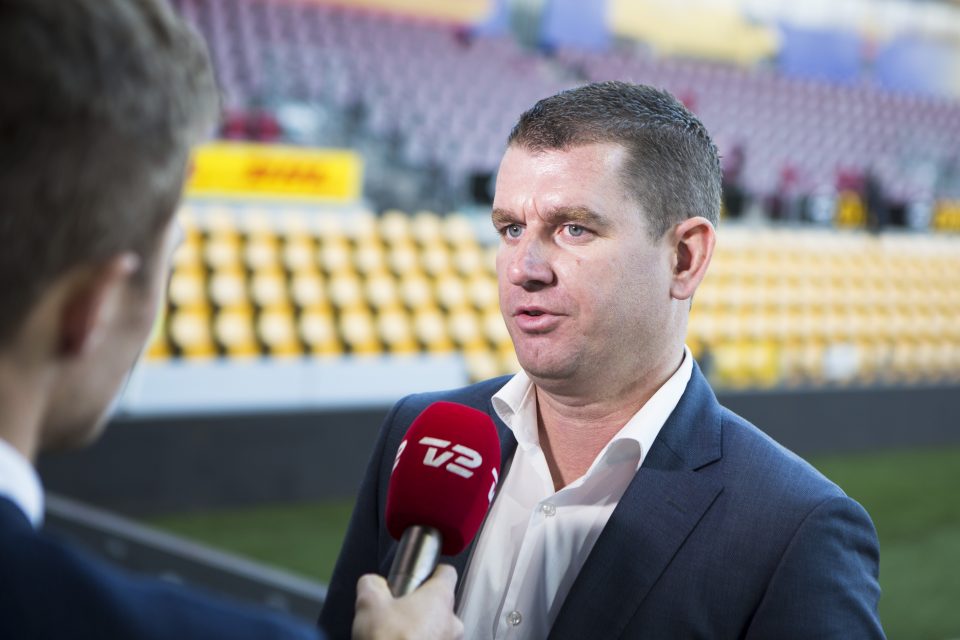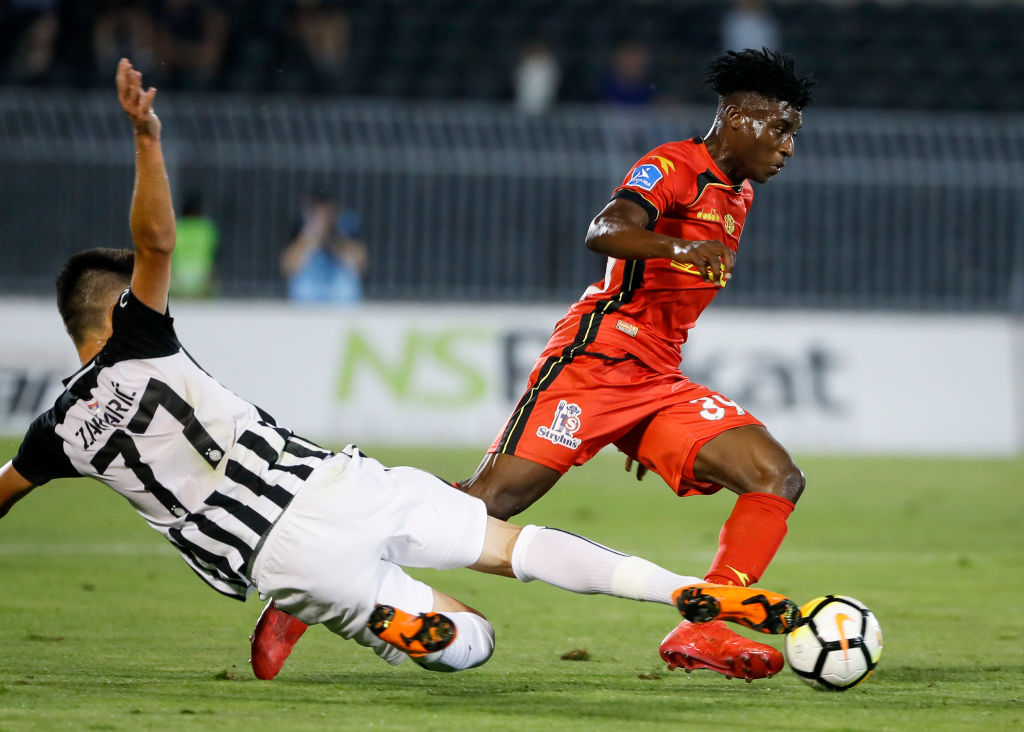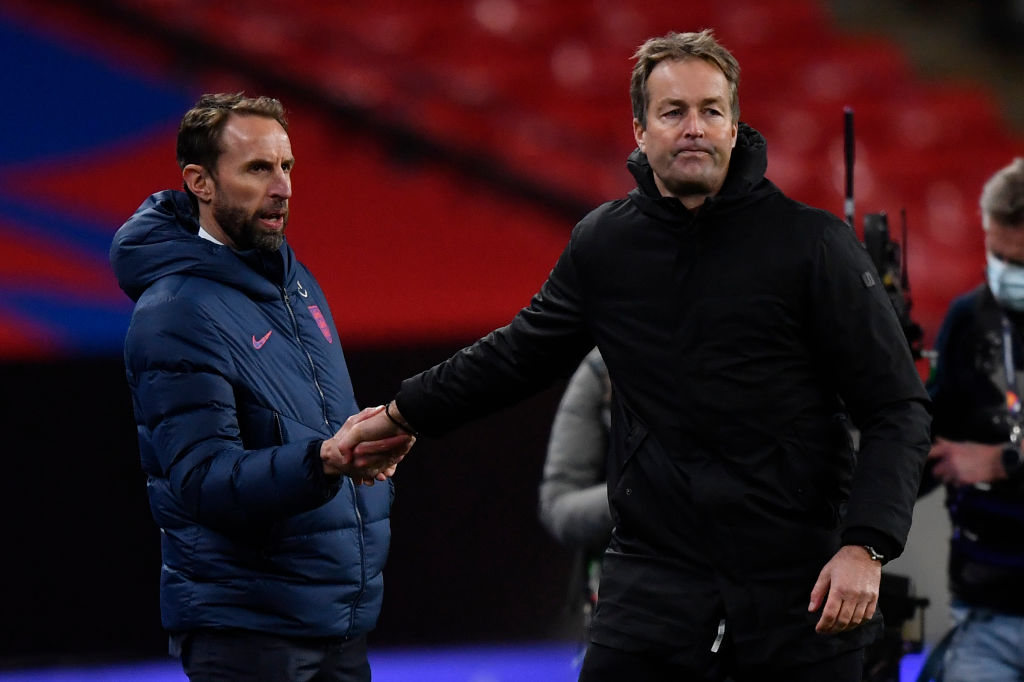FC Nordsjaelland: How a Danish club’s global outlook has helped it to weather the Covid crisis

An Englishman with no experience of running a football club and no track record in Scandinavia was always going to attract scepticism when he took over one of Denmark’s top teams.
Throw in a wildly unconventional ownership model and radically idealistic notions of how the sport should be run and it is no surprise Tom Vernon was cast as an outsider when he led a buyout of FC Nordsjaelland in 2015.
“I don’t know what they teach people at university about how to run a business, but the level and intensity of learning has been incredible,” he tells City A.M..
Vernon’s vision is for football as a tool for social change, improving lives and communities by creating opportunities for disadvantaged people.
That philosophy is at the heart of Right to Dream, the football academy he started in Ghana while still a teenager and turned into the continent’s leading talent production line.
And it was his success in Africa that earned Vernon the financial backing to make Nordsjaelland part of the Right to Dream project.
Buying academies or smaller clubs as feeder operations is established practice, but this was the exact opposite; football’s ownership model turned on its head.
“I’ve seen Ajax, Red Bull and Feyenoord all fail with big investments in African academies and I know the approach of ‘we need to teach them how to do it’ is the root of all the failure,” he says.
“There’s a natural degree of scepticism about anyone who rocks up and says they have the values and beliefs for football that we have.
“That’s meant a lot of heavy lifting and sticking to your guns about what you’re trying to achieve. It’s been great to see a gradual acceptance, understanding and respect for our model.”
Europe’s youngest team
Former Manchester United scout Vernon had much to lose when he arrived at Nordsjaelland, who are based in Farum, a short drive from Copenhagen.
The club’s most successful spell — the 2012 Superliga triumph and runner-up finish the following season — was still fresh in supporters’ memories.
And while they have not reached those heights again yet, they finished third in 2018 and have reached the Championship round every season.

Perhaps even more impressively, given football’s tendency toward financial recklessness, they have remained profitable throughout.
Key to their success both on and off the pitch has been the successful integration of a stream of graduates from both Right to Dream and the club’s domestic academy.
Twelve of the squad for the first game of the season were promoted from within and studies have identified FCN as the youngest top-flight team anywhere in Europe.
Italian clubs have been quick to notice, with Andreas Skov Olsen and Mikkel Damsgaard joining Bologna and Sampdoria in the last 18 months.
FCN’s biggest payday yet came in the summer when Ghanaian teenager and Right to Dream alumnus Mohammed Kudus joined Ajax for £8m.
“There’s all these very tangible metrics to prove that we’re serious and have a good strategy,” says Vernon.
“But the intangible bits — how the values of our organisation have been integrated — you can’t measure on any kind of data. That’s a gut feeling and the gut feeling is really good.”
Nordsjaelland: the way forward?
Contentment was high earlier this year until coronavirus struck, and the reality of being owed transfer payments by clubs in badly affected countries dawned on Vernon.
“It was 29 February, we’d won four in a row and we were in great shape. I was driving home thinking ‘finally’,” he recalls.
“We were kind of at where I was imagining we would get to. There might be a little flu in China but that was nothing to do with us. And then suddenly…
“We looked at it and we had €9m of receivables in Italy, which had gone into lockdown and no one was talking. You’re starting to think: ‘Is this thing going to just collapse after 20 years?’.”
Salvation came from assurances that they would indeed be paid. And not only that; sponsors were particularly keen to go above and beyond the call of duty, he says.
In a time of global crisis, the unique selling point of Nordsjaelland and Right to Dream appears to have made the project more commercially resilient than most.
“A lot of our partners were willing to step up more with us maybe than we’ve seen with other clubs,” Vernon says.
“In a number of ways, the way we’ve done it has made us — I don’t want to say corona-immune, but — much more robust than some of the classic models within football.

“We’ve more or less got cash-flow for three years, which for a club our size is I think a great achievement, considering the cost of running two world-class academies.
“We’re seeing significant growth potential as people are seeing our model might be a way forward for the future.”
Right to Dream’s five years in charge
It is approaching the fifth anniversary of Right to Dream acquiring Nordsjaelland and Vernon is not short of highs and lows to reflect on.
Finishing third has been among the chief successes, he says. Five games into the new campaign, they lie seventh, but expectations are growing as the years pass.
“More and more of our players from Africa and Denmark have been playing together for longer and longer, and so we’re constantly expecting more,” he adds.
Seeing Kudus, Damsgaard and Olsen step up to bigger stages has also pleased Vernon, as has former goalkeeper Runar Alex Runarsson’s surprise transfer to Arsenal, via Dijon.
But he is quick to emphasise that selling the club’s latest stars is a bittersweet process, one in which the competing interests of a buying club and agent can sour relations with a player.
“It’s always amazing when we do a transfer how many people text me congratulations and we never feel like that,” he says.
“It should feel more like a graduation and, whether a player leaves for free or for €10m, it would be great.
“But then you’re also going into negotiations where you’re being forced to put a price on the head of a kid who you’ve brought up since he was 11.”
Football’s moral minefield
Vernon is a long-standing critic of the current transfer system, in particular the deregulation of agents and the “pitiful training compensation” stipulated for academies.
That was a primary reason for buying Nordsjaelland; once performing in Europe, Right to Dream graduates command transfer fees in the millions rather than thousands.
Proceeds go back into the project, but Vernon would be far happier if football followed the lead of the US college system.
“It’s a constant moral minefield trying to stick to what you stand for but knowing that you can’t change the system,” he says.

“I’d love to re-write the system and there’s so much that we could learn from American models of athlete development and education, but also financial models.
“We would be very happy to have a model that recognised the development work we do and not have to put a price on the head of our kids in order to fund it next year.”
Michael Essien and other coaches
Vernon’s role as talent facilitator does not end with his players. He is also proud of the success of a number of coaches to have passed through FCN or Right to Dream.
They include the current managers of Denmark and Ghana, Kasper Hjulmand and CK Akonnor, and Arsenal goalkeeping coach Inaki Cana.
Former Chelsea star Michael Essien is the latest to cut his coaching teeth in the same circles. He has joined Nordsjaelland’s staff while studying for his coaching qualifications.
Perhaps the best tribute to the unorthodox approach that underpins all that Vernon has achieved is that it is gradually proliferating elsewhere.
“The guy who I first wrote the character programme with at Right To Dream 17 years ago just got a job as head of player care and personal development at Leicester,” he says.
“Leicester told him: ‘You’re getting the job because we want to be more like Right To Dream’. For him and us, this is great.
“We want as many people as possible to imitate us because we think it’s the right thing for the game.”
